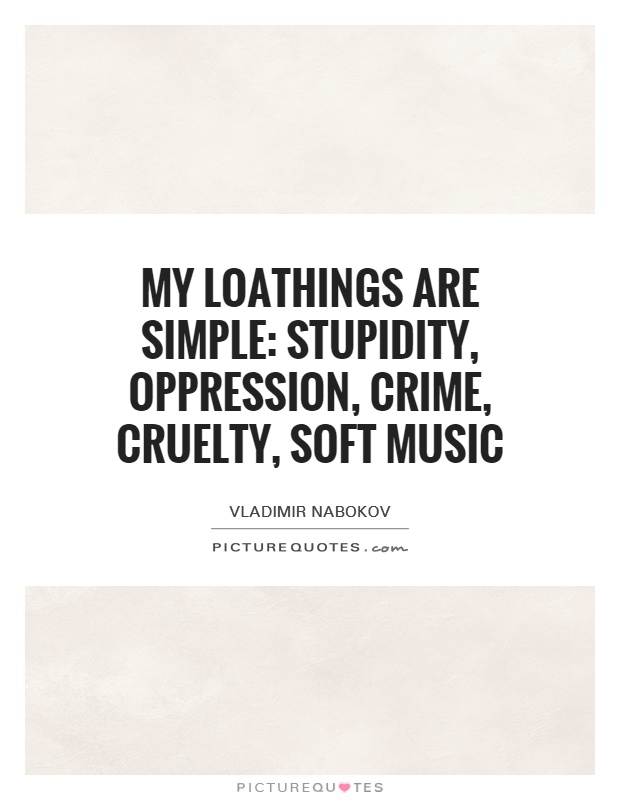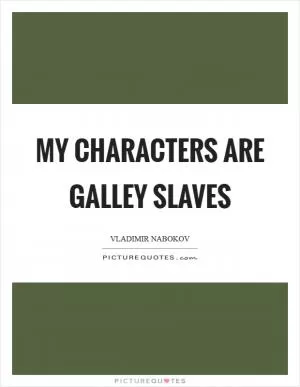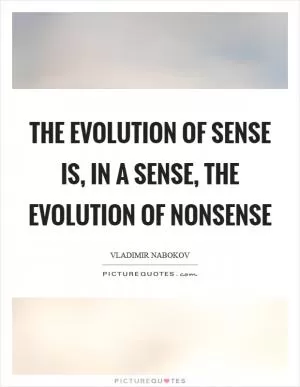My loathings are simple: stupidity, oppression, crime, cruelty, soft music

My loathings are simple: stupidity, oppression, crime, cruelty, soft music
Vladimir Nabokov, the renowned Russian-American novelist, was known for his sharp wit, keen intellect, and disdain for mediocrity. In his famous quote, "My loathings are simple: stupidity, oppression, crime, cruelty, soft music," Nabokov encapsulates his distaste for the banal and the oppressive in society.Nabokov's loathing for stupidity can be seen in his writing, where he often portrayed characters who were intellectually shallow or morally bankrupt. He believed that ignorance was a dangerous force that could lead to oppression and cruelty. In his novel "Lolita," for example, Nabokov explores the consequences of a man's obsession with a young girl, highlighting the destructive power of ignorance and delusion.
Oppression was another theme that Nabokov despised, as he himself experienced the oppressive regime of the Soviet Union before fleeing to the United States. In his novel "Invitation to a Beheading," Nabokov explores the absurdity of totalitarianism and the dehumanizing effects of oppression on individuals. He believed that freedom of thought and expression were essential for a healthy society, and he used his writing to challenge oppressive systems and ideologies.
Crime and cruelty were also subjects that Nabokov tackled in his work, often delving into the darker aspects of human nature. In novels like "Pale Fire" and "Despair," he explored the depths of human depravity and the consequences of immoral actions. Nabokov believed that crime and cruelty were symptoms of a sick society, and he used his writing to expose the ugliness that lurked beneath the surface of civilization.
Nabokov's distaste for soft music can be seen as a metaphor for the superficial and insincere aspects of culture. He believed that art should challenge and provoke, rather than soothe and placate. In his novel "Ada," Nabokov explores the power of art to transcend the mundane and touch the sublime, rejecting the sentimentality and cliches of popular culture.












 Friendship Quotes
Friendship Quotes Love Quotes
Love Quotes Life Quotes
Life Quotes Funny Quotes
Funny Quotes Motivational Quotes
Motivational Quotes Inspirational Quotes
Inspirational Quotes